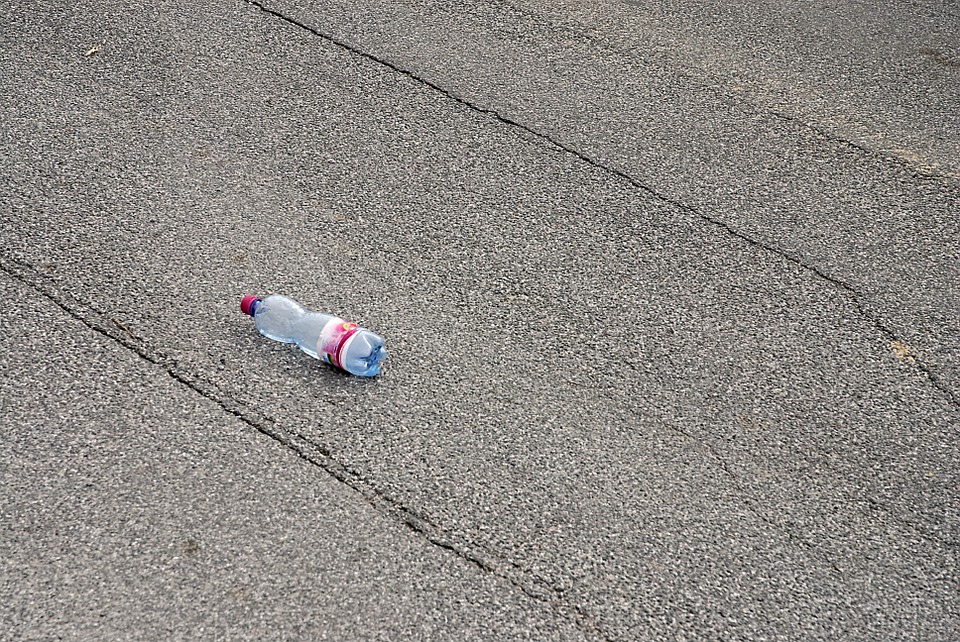
Photo credit: Pixabay (https://pixabay.com/en/road-asphalt-bottle-plastic-cracks-348593/)
According to Plastic Pollution Organization (2017), global production and consumption of plastics has continued to rise in the past 50 years, yet no proper reforms have been introduced to counteract the harmful effects of plastic on the ecosystem.
Sodom and Gomorrah is the nickname for Agbogbloshie, a commercial district near the centre of Accra. Sodom and Gomorrah comprises of the lowest income earners in Ghana. The town mainly suffers from pollution since it is the centre for the legal and illegal dumping of electronic waste materials from industrialized nations. It also serves as a dumping site for the voluminous plastic waste in the country (The Guardian, 2014). To combat the problem of plastic waste pollution in this area, this group (set up for executing a project for the Leadership IVe seminar) ideated on the possibility of reusing plastic waste from this area as a substitute for tar to convert feeder roads into first class roads.
A region in India was identified to be successful in adapting and implementing the idea. The process of making plastic roads includes grinding and melting a large quantity of plastic waste and mixing the melted plastic with bitumen in a certain ratio. This method allows for a suitable replacement of asphalt, as the durability of these plastic roads is much more compared to roads solely made of asphalt.
Regarding the major possible challenges that could emerge from implementing this plastic road idea commercially on a key feeder road, an alternative small-scale approach of implementing preliminary study of plastic roads on small feeder roads or potholes found on the Ashesi University campus is currently being tested. Conducting this pilot study will enable the team to evaluate the feasibility, duration, and cost of making a plastic road and thus enable us to improve on our design prior to conducting a full-scale project of building a main road. The plastic road project will tackle two problems at once. First, it will strategically minimize and recycle plastic waste material in Sodom and Gomorrah, through the construction of quality plastic roads. Also, experimental research has proven that plastic roads are long-lasting and stronger than roads made of asphalt (Earth Untouched, 2014), hence the sustainability of this project for national use is rest assured.
Surely, we have a responsibility to leave for future generations a planet that is healthy and habitable by all species—–Sir David Attenborough
PS: We are excited to get our hands dirty this semester and bring tremendous change to our society. Let’s GO SMART and get rid of plastic pollution in a cool way!!!

